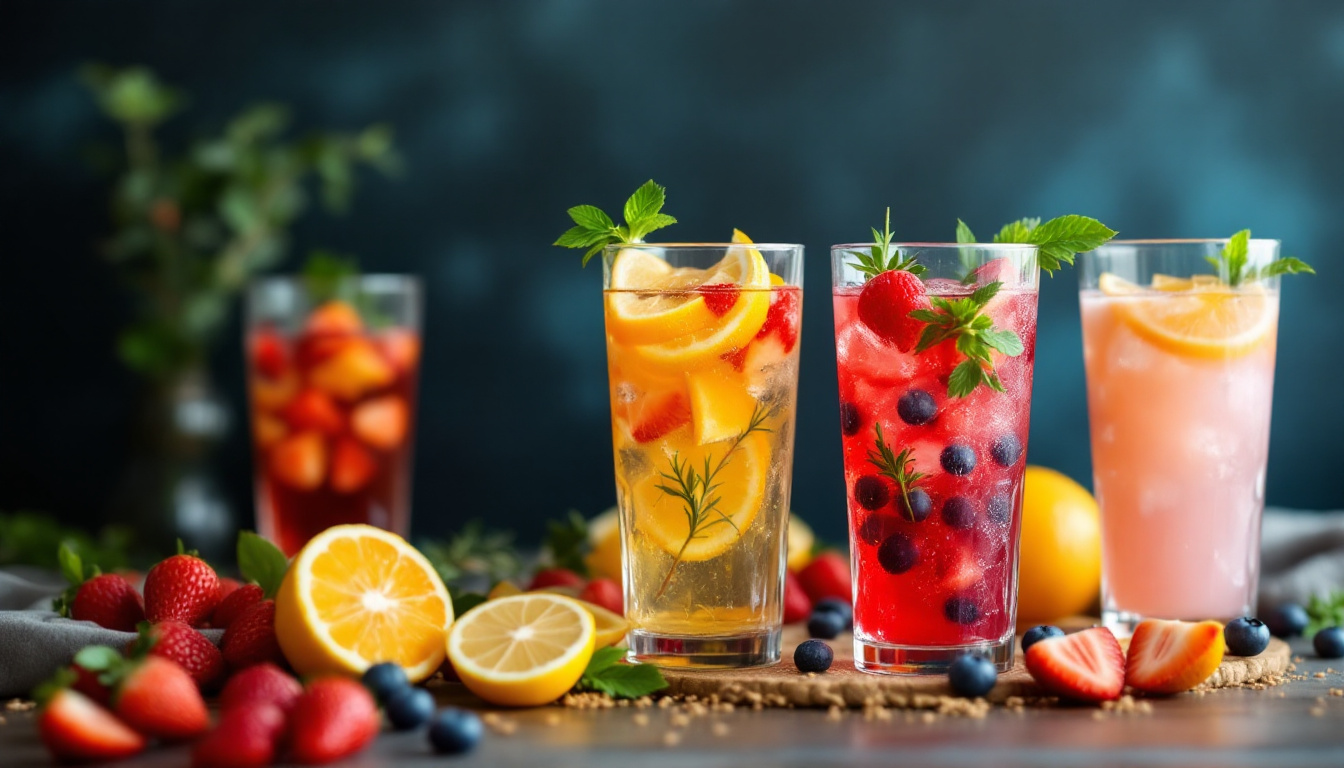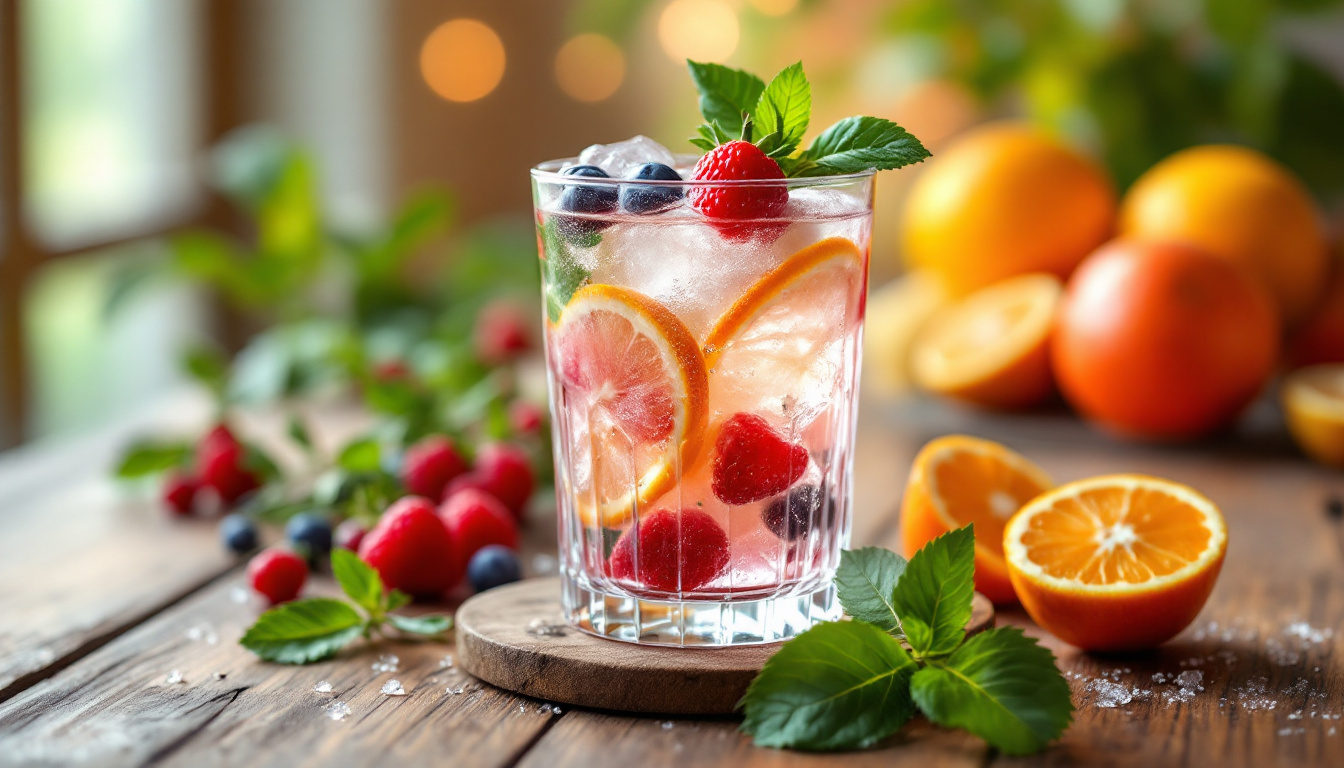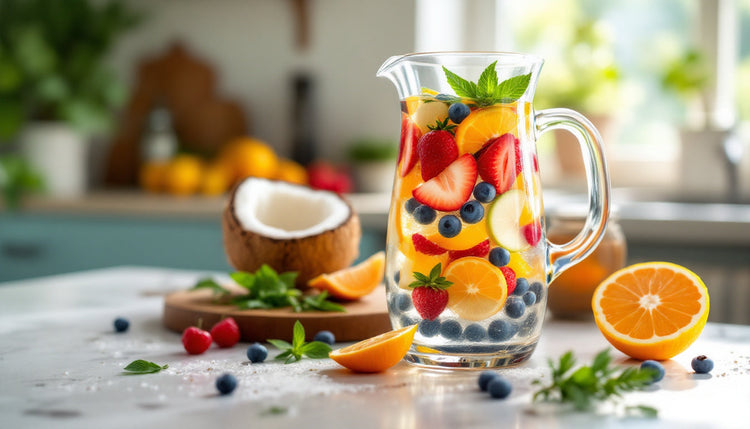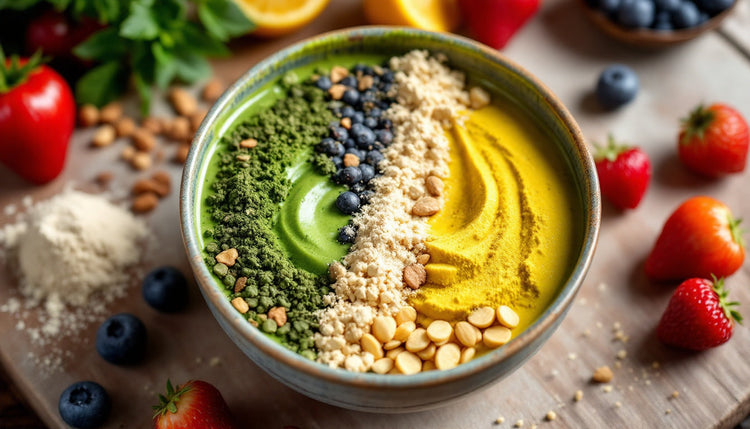When illness strikes, staying hydrated becomes a top priority. But not all drinks are created equal when it comes to replenishing lost electrolytes. While water is essential, the right electrolyte drink can make a significant difference in recovery. Let's dive into the world of electrolyte drinks and discover which ones are best suited for when you're under the weather.
Understanding Electrolytes and Their Importance
Electrolytes are minerals that carry an electric charge, crucial for various bodily functions. They help regulate nerve and muscle function, hydrate the body, balance blood acidity and pressure, and help rebuild damaged tissue. When you're sick, especially with symptoms like vomiting or diarrhea, your body loses these vital minerals. This loss can lead to a cascade of symptoms that can hinder your recovery, making it essential to understand the role of electrolytes in your overall health.
What Are Electrolytes?
Electrolytes include sodium, potassium, calcium, bicarbonate, magnesium, chloride, and phosphate. Each plays a unique role in maintaining health. Sodium and potassium, for instance, are key in maintaining fluid balance and nerve signaling. Calcium is essential for muscle contractions and bone health, while magnesium supports muscle and nerve function. Chloride helps maintain fluid balance, and phosphate is crucial for energy production. The balance of these electrolytes is vital; an excess or deficiency of any one can lead to significant health issues, particularly when the body is under stress from illness.
Moreover, the importance of electrolytes extends beyond just hydration. They are involved in various biochemical processes, including the regulation of pH levels in the body, which is crucial for optimal cellular function. For instance, a proper balance of calcium and magnesium is necessary for muscle relaxation and contraction, which can be particularly important if you're experiencing muscle cramps or spasms during your illness. Understanding these nuances can help you make informed choices about your hydration strategy when you're feeling unwell.
Why Are Electrolytes Crucial When Sick?
During illness, especially with fever, vomiting, or diarrhea, the body can quickly become depleted of these essential minerals. This depletion can lead to dehydration, muscle cramps, fatigue, and even more severe complications if not addressed promptly. The symptoms of dehydration can often mimic those of the illness itself, making it difficult to discern whether your condition is worsening or if you simply need to replenish your fluids and electrolytes.
Replenishing electrolytes helps maintain the body's fluid balance, supports muscle function, and ensures that the nervous system operates efficiently. This is why choosing the right electrolyte drink is vital during sickness. Additionally, the recovery process can be significantly enhanced by ensuring that your body has the necessary nutrients to heal. Electrolytes play a role in cellular repair and regeneration, which is particularly important when your body is fighting off an infection or recovering from an illness. Therefore, not only do electrolytes help you feel better in the short term, but they also support long-term health and recovery.
Top Electrolyte Drinks for Illness Recovery
Not all electrolyte drinks are created equal. Some are packed with sugars and artificial ingredients, while others offer a more natural approach. Here, we explore some of the best options available, taking into account their nutritional profiles, taste, and effectiveness in rehydration.

Wondering if you're taking your supplements correctly? Review our guide to find out.
Coconut Water
Coconut water is a natural source of electrolytes, particularly potassium. It's low in calories and sugar, making it a healthier choice compared to many commercial sports drinks. Its natural composition closely resembles that of human plasma, which makes it an excellent choice for rehydration. Additionally, coconut water contains antioxidants that can help combat oxidative stress in the body, which may be elevated during illness.
However, it's important to note that while coconut water is rich in potassium, it may not provide enough sodium, which is also crucial during illness. Consider pairing it with a sodium-rich snack or drink. Furthermore, the taste of coconut water can be polarizing; some people love its tropical flavor, while others may find it too sweet or unfamiliar. If you're not a fan, consider mixing it with other juices or using it as a base for smoothies to enhance the flavor while still reaping the benefits of its electrolyte content.
Oral Rehydration Solutions (ORS)
Oral rehydration solutions are specifically designed to combat dehydration. They contain a precise balance of salts and sugars to optimize absorption in the intestines. These solutions are often recommended by healthcare professionals for treating dehydration caused by diarrhea or vomiting. The World Health Organization (WHO) has endorsed the use of ORS in managing dehydration, particularly in children, due to their effectiveness and ease of use.
ORS can be found in pharmacies and are available in various flavors to make them more palatable. They are an excellent choice for both children and adults during illness. It's worth noting that while ORS is effective, it is also important to monitor the overall intake of fluids and electrolytes to ensure that you are not over-relying on these solutions alone. Incorporating a variety of hydration sources can help maintain a balanced electrolyte profile and prevent any potential imbalances that could arise from excessive use of a single type of drink.
Homemade Electrolyte Drinks
For those who prefer a DIY approach, homemade electrolyte drinks can be a cost-effective and natural alternative. A simple recipe includes water, a pinch of salt, a splash of lemon juice, and a teaspoon of honey. This mixture provides a balance of sodium, potassium, and glucose to aid in rehydration. You can also experiment with different flavors by adding fruits like oranges, limes, or berries, which not only enhance the taste but also add additional vitamins and minerals.
Adjust the ingredients to taste, and remember that the goal is to create a drink that is both hydrating and palatable. Experiment with different flavors to find what works best for you. Additionally, consider incorporating herbal teas or infusions, which can provide soothing properties and additional hydration. For example, ginger tea can help with nausea, while chamomile can promote relaxation, making it easier to rest and recover.
Factors to Consider When Choosing an Electrolyte Drink
With so many options available, selecting the right electrolyte drink can be overwhelming. Here are some factors to consider to ensure you make the best choice for your needs.
Sugar Content
Many commercial electrolyte drinks contain high levels of sugar, which can be counterproductive, especially if you're trying to avoid excess calories. Look for drinks with low or no added sugars, or opt for natural alternatives like coconut water. It's also important to be aware of the types of sugars used; some drinks may contain high fructose corn syrup or artificial sweeteners, which can have negative effects on your health and recovery.
In addition to sugar content, consider the overall caloric content of the drink. While some calories can be beneficial for energy, especially if you're not eating much due to illness, excessive calories from sugar can lead to spikes in blood sugar levels, which may not be ideal for recovery. Always read labels carefully and choose drinks that align with your health goals and dietary needs.
Ingredient Quality
Check the ingredient list for artificial additives, colors, and preservatives. Natural ingredients are generally better for your health and can provide the necessary electrolytes without unwanted extras. Additionally, consider the source of the electrolytes; for example, some drinks may use synthetic sources of minerals, while others may derive them from natural sources like sea salt or mineral-rich waters.
Furthermore, the presence of additional vitamins and minerals can enhance the effectiveness of an electrolyte drink. For instance, some brands fortify their drinks with vitamin C or B vitamins, which can support immune function and energy metabolism, respectively. When selecting an electrolyte drink, look for those that offer a well-rounded nutritional profile to support your overall health during recovery.
Specific Needs
Consider your specific health needs and symptoms. If you're losing a lot of sodium through sweat or illness, choose a drink that replenishes sodium effectively. If you're looking for a potassium boost, coconut water might be your best bet. Additionally, if you have any dietary restrictions or allergies, be sure to choose drinks that align with your needs. For example, some electrolyte drinks may contain gluten or dairy, which could be problematic for individuals with sensitivities.
Moreover, if you have underlying health conditions such as kidney disease or hypertension, it's crucial to consult with a healthcare professional before selecting an electrolyte drink. They can provide personalized recommendations based on your health status and ensure that you are choosing options that are safe and beneficial for your recovery.
Practical Tips for Staying Hydrated When Sick
Beyond choosing the right electrolyte drink, there are additional strategies to ensure you stay hydrated during illness. Staying mindful of your hydration habits can significantly impact your recovery process.
Monitor Fluid Intake
Keep track of how much fluid you're consuming throughout the day. Aim for small, frequent sips rather than large amounts at once, which can be overwhelming for the stomach. Using a measuring cup or a water bottle with markings can help you gauge your intake more accurately. Additionally, setting reminders on your phone or using hydration tracking apps can encourage you to drink regularly, especially if you're feeling fatigued or unwell.
Incorporate Hydrating Foods
Foods like soups, broths, and fruits with high water content can contribute to your overall fluid intake. These options can be soothing and easier to consume when you're not feeling well. For example, watermelon, cucumbers, and oranges are not only hydrating but also provide essential vitamins and minerals that can support your immune system. Additionally, consider making smoothies with hydrating ingredients like spinach, kale, and yogurt, which can provide a nutrient-dense option that is easy to digest.
Listen to Your Body
Your body often signals when it needs more fluids. Pay attention to signs of dehydration, such as dry mouth, fatigue, and dark urine, and respond by increasing your fluid intake accordingly. It's also important to recognize that your hydration needs may change throughout the day, especially if you're experiencing fluctuations in symptoms. For instance, if you have a fever, your body may require more fluids to help regulate your temperature, so be proactive in adjusting your intake as needed.
Utilize Hydration Reminders
Incorporating hydration reminders into your daily routine can be a helpful strategy, especially when you're feeling under the weather. Setting alarms on your phone or using sticky notes in visible places can serve as gentle nudges to remind you to drink fluids regularly. Additionally, consider keeping a water bottle or your chosen electrolyte drink within arm's reach, making it more convenient to sip throughout the day. This simple change can significantly increase your overall fluid intake and support your recovery process.
Conclusion
Choosing the best electrolyte drink when sick involves understanding your body's needs and selecting options that provide the necessary minerals without unnecessary additives. Whether you opt for coconut water, ORS, or a homemade solution, the key is to stay hydrated and listen to your body's signals. By doing so, you can support your recovery and return to health more swiftly. Remember that hydration is just one aspect of recovery; maintaining a balanced diet, getting adequate rest, and seeking medical advice when necessary are all crucial components of the healing process. Prioritizing your health and well-being will not only help you recover from illness but also set the foundation for a healthier future.





